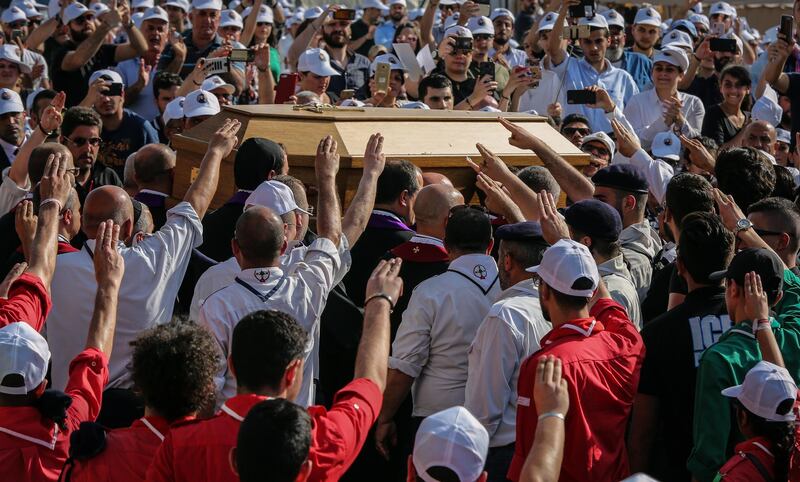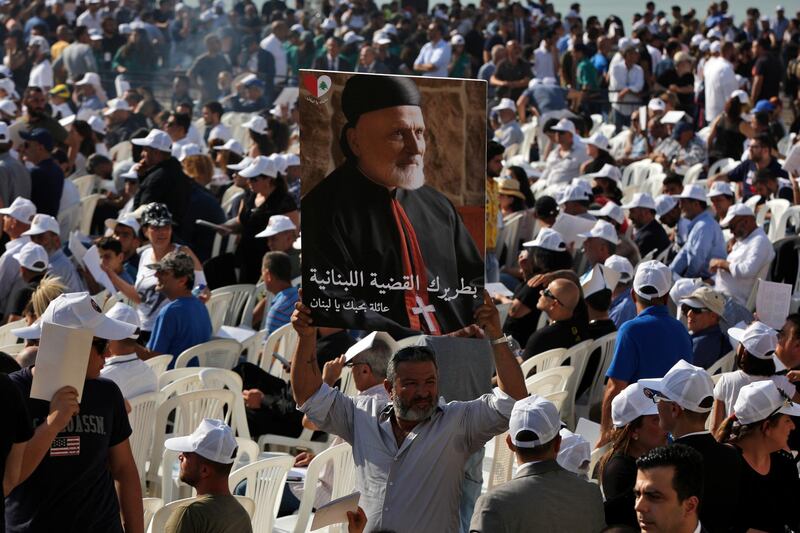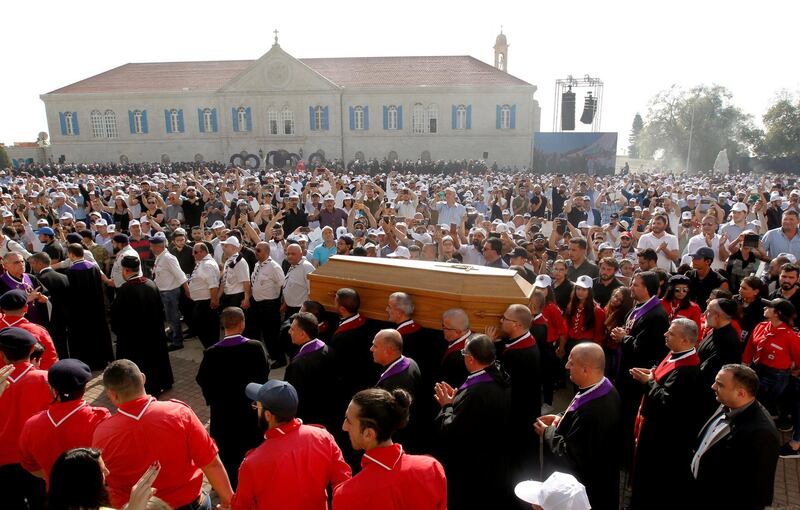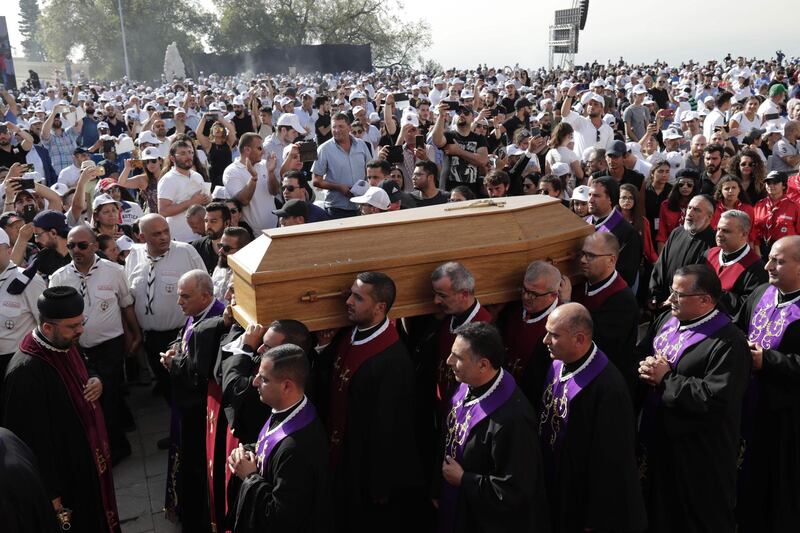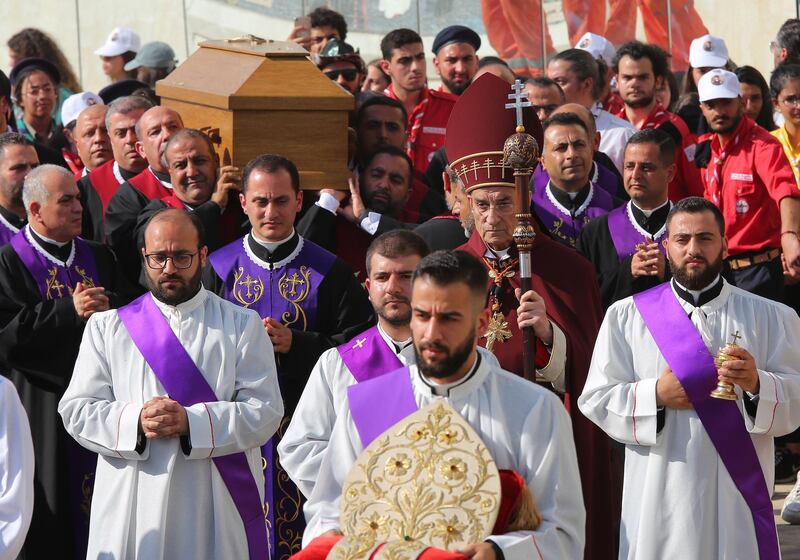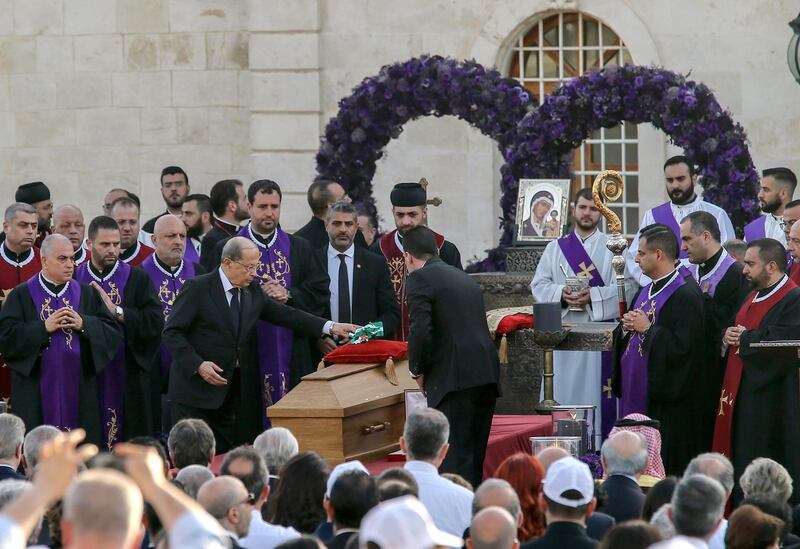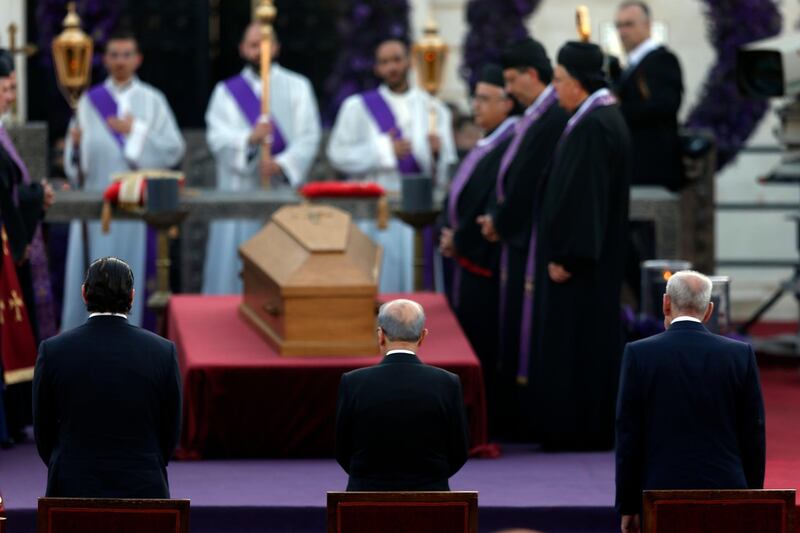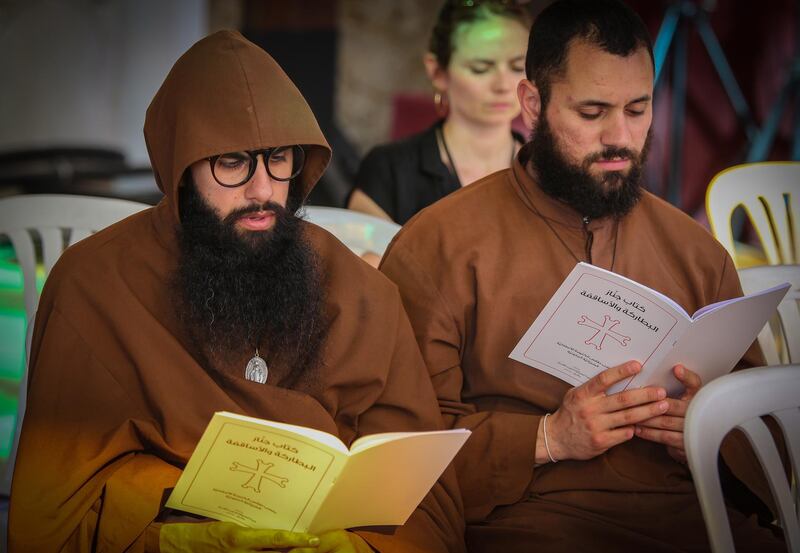More than 8,000 Lebanese gathered in Bkerke, headquarters of the Maronite church, on Thursday for the funeral of former patriarch Nasrallah Boutros Sfeir, who died on Sunday at the age of 98.
Representatives from states including France, Jordan and the Vatican flew in to pay their respects to one of the country’s most prominent leaders.
“Sfeir was a Christian but he was also a Lebanese who believed in co-existence," former prime minister Fouad Siniora, a Sunni Muslim, said as he arrived in Bkerke, welcomed by clouds of incense burning at the entrance.
"That’s why he is liked and appreciated by all the Lebanese, irrespective of their religion.
The pope’s representative, Cardinal Leonardo Sandri, described Sfeir as a “brave, free man” who “carried out his mission in turbulent conditions”.
Sheikh Mohammed bin Rashid, Vice President of the UAE and Ruler of Dubai, offered condolences to the Lebanese people on the death of the patriarch, describing him as "a force for making peace and establishing Lebanon's stability ".
تعازينا للشعب اللبناني الشقيق في وفاة البطريرك الماروني نصر الله صفير ... كان قوة لصنع السلام وترسيخ استقرار لبنان .. ومثال حقيقي لرجل الدين المتواضع والمحب لقيم العدالة والسلام . pic.twitter.com/Us0qLPC4i3
— HH Sheikh Mohammed (@HHShkMohd) May 16, 2019
Sfeir became patriarch in 1986, in the last few years of the Lebanese civil war, and held the position until 2011. He is mainly remembered for leading a campaign calling for the withdrawal of Syrian troops from Lebanon and for reconciling Christians and Druze communities.
"He was a great man who did a lot to establish dialogue between Druze and Christians," Druze Sheikh Nizam Bou Khzam told The National as he was leaving Bkerke.
Strong anti-Syrian voices, such as the Minister of State for Administrative Development, May Chidiac, paid tribute to his heritage.
“We are all his disciples," Ms Chidiac said. “I may have lost half my body, but I continue to fight”.
A former TV news presenter, Ms Chidiac was the target of an assassination attempt in 2005, a year in which several prominent anti-Syrian journalists and politicians were killed.
After 29 years of occupation, Syrian troops had to leave after the uproar caused by the killing of Prime Minister Rafiq Hariri.
Ms Chidiac remembers how Sfeir visited her in hospital in Lebanon and France after the attack.
“He would check on me and pray for me," she said.
Sfeir’s first few years as patriarch were some of the darkest hours of Lebanon’s Christian community, as current president Michel Aoun and leader of the Lebanese Forces party Samir Geagea fought each other.
The memories of these divisions are still painful.
Milad Abou Halloum, a law student and Lebanese Forces activist, says he does not trust supporters of Mr Aoun.
To explain, he shows video footage from 1989, when Sfeir, then 79, was assaulted by Aoun supporters and his home ransacked.
They were protesting against his support for the Taef accord, which brought Lebanon’s civil war and inter-Christian fighting to an end the following year, but also consolidated Syria’s grip on Lebanon.
Sfeir "suffered in silence" despite the humiliation, former president Amin Gemayel told The National.
“There were moments of great sorrow but he went beyond bitterness and gave lessons of faith," Mr Gemayel said.
Most people at the funeral said those wounds had healed.
"We may still be angry against supporters of president Aoun but I have cousins that support him. We can't continue fighting," Maroun Abou Halloun, a Lebanese Forces fighter during the civil war, told The National.
Mr Geagea was the only former militia leader jailed after the civil war ended in 1990. His supporters believe this was at the behest of Syria.
Many of them came to Sfeir’s funeral in buses waving the party flag, but Bkerke banned political insignia. Young men had to turn their black Lebanese Forces T-shirts inside out before entering the grounds.
The arrival of Mr Geagea and his wife Sethrida provoked huge excitement, with the crowd chanting “God, the Lebanese Forces, the doctor [Mr Geagea], and nothing more”.
Sfeir was popular with the party because he campaigned for Mr Geagea’s release in the name of freedom of expression.
In the 1990s, with Mr Geagea in prison and Mr Aoun in exile, he became the most prominent Christian leader in the country.
Sfeir was also a vocal critic of Hezbollah, the only Lebanese militia that was allowed to keep its weapons after the end of the civil war in 1990. Today, its militia operate in parallel to the country's national army.
In a clear criticism of the Iran-backed party, current patriarch Bechara Boutros Al Rahi called Sfeir a “resistance fighter without a weapon, sword or rockets”, during his sermon on Thursday.
A Hezbollah delegation visited Mr Al Rahi to offer its condolences on Monday, saying that “nothing stopped us from participating in the funeral” four days later.
But the state-run National News Agency, which noted the presence of delegations from several other political parties, made no mention of Hezbollah representatives.
